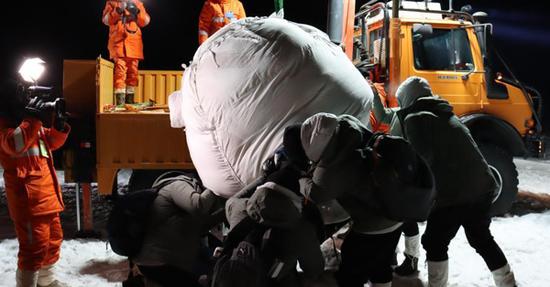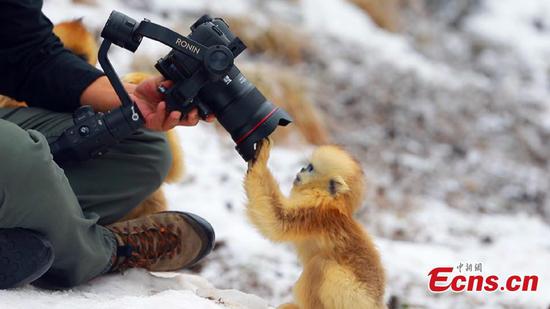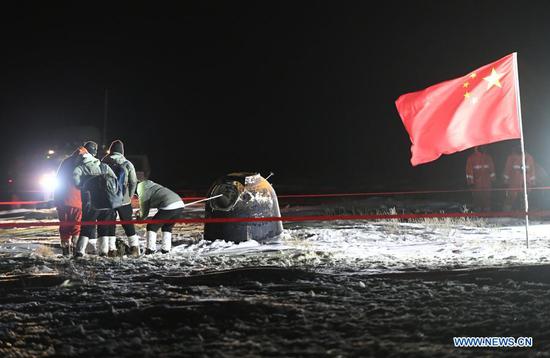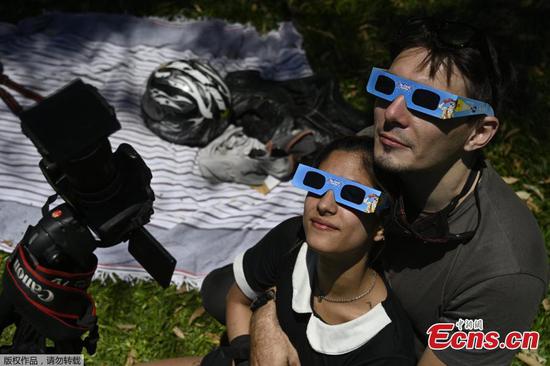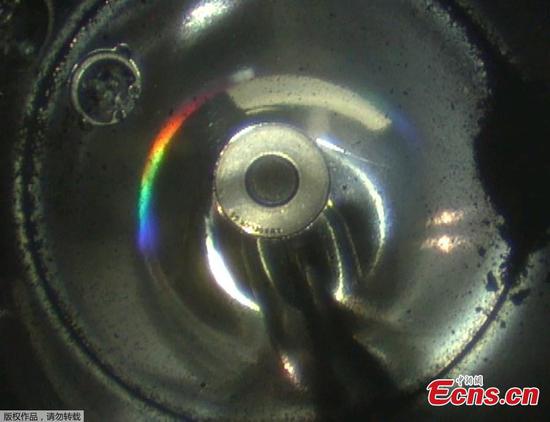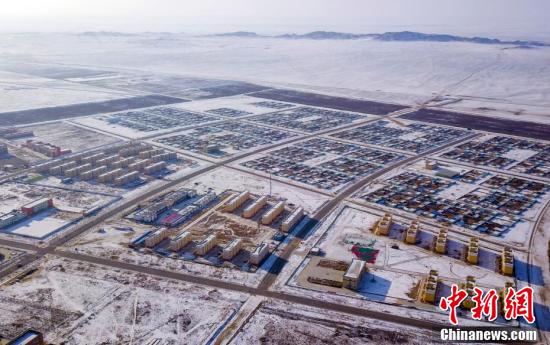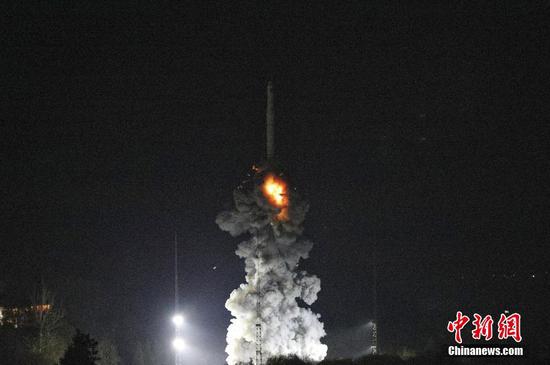
The return capsule of China's Chang'e-5 probe lands in Siziwang Banner, North China's Inner Mongolia autonomous region, on Dec 17, 2020. (Photo/Xinhua)
NASA's congratulations
After the reentry capsule's landing was announced, Thomas Zurbuchen, associate administrator of NASA's Science Mission Directorate, wrote on social media: "Congratulations to China on today's return of lunar samples to Earth! The international science community celebrates your successful Chang'e 5 mission. These samples will help reveal secrets of our Earth-moon system and gain new insights about the history of our solar system."
The first man-made object from Earth to reach the moon was the Soviet spacecraft Luna 2. Instead of landing, it crashed into the moon in September 1959. The first lunar soft-landing was made in February 1966 by the Soviet Luna 9 spacecraft.
The Chinese government approved in January 2004 an overall plan for the country's lunar exploration program and officially launched the research and development work.
The first Chang'e probe was launched in October 2007. Since then, China has launched five lunar probes, including Chang'e 5, and one experimental spacecraft.
Before Chang'e 5, Chang'e 4, which remains operational on the moon, was the most remarkable lunar mission by China as it was the first endeavor by any nation to conduct surface observation of the moon's far side, which never faces Earth, thereby accomplishing a goal sought by scientists for decades.
The design work for Chang'e 5 began in January 2011 and was concluded in December 2012, and then designers and engineers started building the probe's prototype. Construction of Chang'e 5 began in December 2015 at the China Academy of Space Technology.












